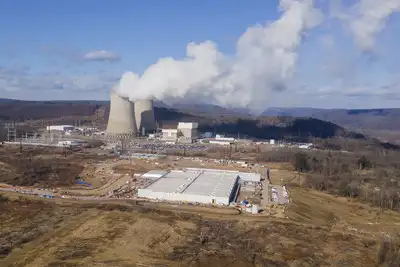Amazon’s Pennsylvania investment: 2 data centres worth $20 billion; One taps directly into nuclear power
Amazon on Monday announced a $20 billion investment to develop two data centre complexes in Pennsylvania, adding to the billions of dollars that Big Tech’s have already poured into the state’s booming data centre industry.The e-commerce giant is planning to construct one data centre next to Susquehanna nuclear power plant, but the plan is now under federal investigation due to concerns over the company drawing power directly from the facility. The other is planned just north of Philadelphia, Kevin Miller, vice president of global data centers at Amazon Web Services told AP on Monday. The Pennsylvania investment follows a string of similar commitments by Amazon this year, with $10 billion each pledged for data centre projects in Mississippi, Indiana, Ohio and North Carolina, marking an aggressive expansion as tech giants vie for dominance in the AI era.As cloud computing and AI continue to grow rapidly, the demand for data centers is also surging as the technologies require significant power to operate servers, storage systems, networking gear, and cooling infrastructure.Why the scrutiny over the Susquehanna plant?The data centre near the Susquehanna plant stands out not just for its scale but for the way it plans to tap into power. In a deal struck last year, Talen Energy, majority owner of the nuclear facility, sold its adjacent data centre to Amazon for $650 million. The agreement would allow Amazon to access up to 960 megawatts of electricity, approximately 40% of the plant’s output, sufficient to power over 500,000 homes.However, the unique “behind the meter” arrangement, which enables Amazon to plug directly into the plant without routing through the broader power grid, has triggered the attention of the Federal Energy Regulatory Commission (FERC). This is the first case of its kind to come before the agency.Regulators are now examining whether such setups unfairly allow large tech firms to bypass grid fees and if prioritising high-paying corporate users could jeopardise energy availability for others.







Post Comment